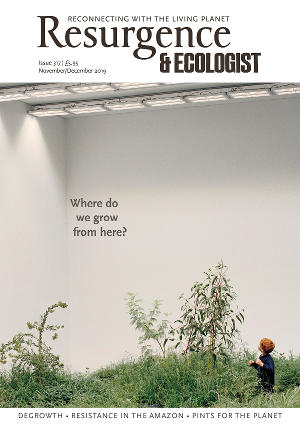The robots are coming. Granted, this is something we’ve heard for decades, from Mary Shelley’s Frankenstein right up until contemporary concerns about automation creating permanent mass unemployment. Still, despite all the false alarms, all the false dawns, smart money would now put us on the precipice of sweeping change in artificial intelligence (AI).
In recent years the pace of development in AI has produced some truly incredible things, including in 2015 the bot AlphaGo beating a human at a game with hundreds of thousands more possible moves than chess. Algorithms and machine learning are on the cusp of replicating even the most complex motor skills, including surgery and manufacturing. The scale of change in the years ahead is likely to be unparalleled in history.
For some this heralds disaster, subjecting us to perpetual redundancy and possible subjugation. For others it promises utopia, freeing us from a life of toil and waged labour. For James Lovelock it does neither. He doesn’t fear the coming of hyperintelligence; nor does he see it as the bridge to liberation. Instead he sees cyborgs as the inevitable next step in human and planetary evolution. “Just 300,000 years ago, this planet, alone in the cosmos, attained the capacity to know itself,” he writes. “We are now preparing to hand the gift of knowing on to new forms of intelligent beings.”
Lovelock’s optimism for a future of hyperintelligent beings is grounded in his flagship Gaia theory, the once-maligned, now-mainstream idea that the Earth is a unified, self-regulating organism. In accordance with this, he believes that electronic beings will need organic life to endure, in order to keep the planet cool and habitable. In this scenario, cyborgs will view humans in much the same way that most humans view plants today – as basically insentient, but essential to survival. Many readers will find this idea nightmarish. Indeed, some of Lovelock’s writing is among the most paralysingly frightening I have ever read, dispassionately describing the possibility of an Earth that overheats to the conditions of Venus within the lifespan of those alive today. On the other hand, even when he is at his most apocalyptic there is something strangely comforting in his gentle attack on anthropocentric assumptions.
Through almost all religious and humanist thought, we have imagined ourselves to be central to the cosmos, elevated from all other forms of life. When we imagine the rise of the robots, there are usually two possible outcomes: overcoming the threat and reasserting our dominance, or being totally wiped out. Through the wider lens of Gaia, Lovelock sees things differently. He predicts the cyborgs to be our peaceful successors, neither our servants nor our oppressors, living more or less in harmony.
This benign displacement uproots humanist thought, both secular and religious. We are not special. “Our supremacy as the prime understanders of the cosmos is rapidly coming to end,” Lovelock writes. Yet is it really so bad to reimagine ourselves as a link in the chain of life on Earth, rather than the endpoint of evolution or creation? This is better, surely, than outright extinction?
Predictions about AI have often been so outlandish and so far off the mark that they tend to elicit eye-rolls rather than panic nowadays. This unapologetically loopy book will doubtlessly result in the same response from many readers, and only time will tell how the bold claims of Novacene stand up. But if the robots really are coming, we could meet worse fates than Lovelock’s vision of life on Earth in the centuries ahead. It’s not exactly fully automated luxury communism. Still, it’s a great deal better than Blade Runner.






